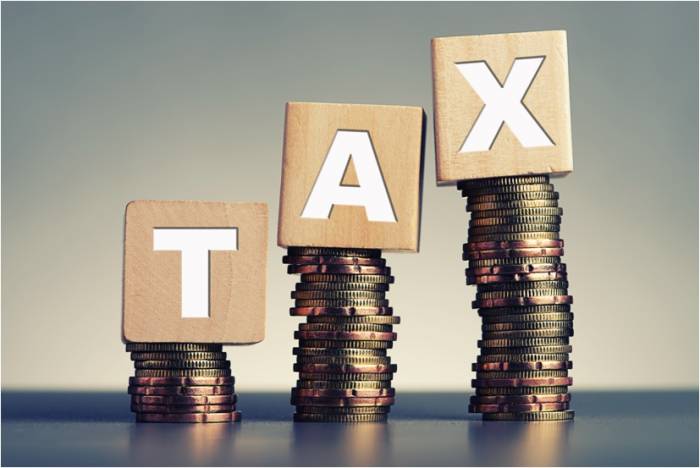93 % des régions françaises sont menacées par l'intensification du débat sur la taxe sur le vin dans un contexte de crise du secteur
Les propositions d'augmentation des taxes sur l'alcool suscitent l'inquiétude des producteurs confrontés à une baisse de la consommation, à des difficultés économiques et à une pression croissante de la part des législateurs.
24-10-2025

Alors que la France entre dans la saison automnale, le débat sur l'augmentation des taxes sur le vin a refait surface dans le contexte du premier projet de loi de financement de la sécurité sociale 2026. Plusieurs amendements ont été proposés à la commission des affaires sociales de l'Assemblée nationale, visant à étendre les cotisations de sécurité sociale à toutes les boissons alcoolisées, à taxer la publicité sur l'alcool et à indexer les taxes sur l'alcool sur l'inflation. Ces propositions interviennent à un moment où la filière viticole française est confrontée à une crise importante, la baisse de la consommation et les difficultés économiques affectant les producteurs dans tout le pays.
Samuel Montgermont, président de Vin & Société, une organisation représentant le secteur vitivinicole français, a exprimé son inquiétude quant à la nature récurrente de ces amendements fiscaux. Il a noté que de telles mesures ne sont pas initiées par le gouvernement lui-même mais sont régulièrement introduites par certains groupes parlementaires, en particulier ceux de la gauche et des partis écologistes. M. Montgermont a critiqué ce qu'il a décrit comme un manque de sensibilisation de certains législateurs aux difficultés actuelles auxquelles est confrontée l'industrie du vin, en particulier à la lumière des récents problèmes commerciaux avec la Chine qui affectent les producteurs de cognac et d'une crise plus large qui affecte les vignobles à l'échelle nationale.
M. Montgermont a fait valoir que l'augmentation des taxes sur le vin aurait un impact massif sur l'économie sans pour autant s'attaquer efficacement aux comportements de consommation excessive d'alcool. Il a souligné que la consommation de vin en France est devenue largement occasionnelle, la plupart des Français buvant du vin avec modération. Selon M. Montgermont, cibler la consommation modérée en augmentant les taxes ne permettrait pas d'atteindre les objectifs de santé publique, mais nuirait plutôt à une industrie qui soutient l'emploi et les communautés rurales dans 93 % des départements français.
Le débat sur la taxation de l'alcool se déroule dans un contexte de finances publiques tendues en France. Bien qu'il ne semble pas y avoir de majorité parlementaire en faveur de ces nouvelles taxes à l'heure actuelle, M. Montgermont a averti que la nécessité pour le gouvernement de trouver de nouvelles sources de revenus pourrait rendre ces mesures plus attrayantes. Il a souligné l'importance de la vigilance et d'un dialogue permanent avec les législateurs pour expliquer les conséquences potentielles pour le secteur vitivinicole.
M. Montgermont a également abordé la question plus générale de la santé publique, notant que l'Organisation mondiale de la santé a récemment reconnu la distinction entre une consommation modérée et une consommation excessive d'alcool. Il a appelé à se concentrer sur la lutte contre les modes de consommation nocifs plutôt que de pénaliser les consommateurs modérés ou le secteur vitivinicole dans son ensemble.
En ce qui concerne la communication sur les effets du vin sur la santé, M. Montgermont a répondu aux appels récents de certains membres de la communauté médicale à promouvoir ce que l'on appelle le "paradoxe français", c'est-à-dire l'idée qu'une consommation modérée de vin peut avoir des effets bénéfiques sur la santé. Il a déclaré qu'il n'appartenait pas aux représentants de l'industrie de faire des allégations de santé sur leurs produits, soulignant plutôt l'importance d'une consommation responsable dans le cadre des directives de santé publique.
Le cadre juridique régissant la publicité pour l'alcool en France, en particulier la loi Évin, a également fait l'objet d'un examen minutieux. Certains producteurs affirment que les restrictions actuelles les empêchent de promouvoir l'œnotourisme et le savoir-faire régional. M. Montgermont reconnaît que si des clarifications ont été apportées pour permettre une certaine communication sur les régions viticoles, il se demande si d'autres modifications de la loi seraient efficaces ou souhaitables, compte tenu des réalités financières de la publicité dans les médias de masse et de l'évolution des habitudes des consommateurs.
Au niveau européen, 23 régions françaises ont signé un appel de Strasbourg demandant un soutien plus fort au secteur vitivinicole européen. M. Montgermont a insisté sur la nécessité d'une coordination et d'une unité entre les pays producteurs de vin afin de s'assurer que leur voix soit entendue à Bruxelles. Il a cité les récents succès remportés en matière d'influence sur la politique internationale comme preuve qu'une approche coordonnée peut donner des résultats.
Alors que le débat se poursuit, M. Montgermont a exhorté les décideurs politiques à tenir compte de l'impact réel des mesures fiscales sur un secteur déjà confronté à d'importants défis. Il a appelé les élus à s'engager directement auprès des producteurs de vin et à reconnaître l'importance du secteur pour la culture française et l'économie rurale.
Fondée en 2007, Vinetur® est une marque déposée de VGSC S.L. qui a une longue histoire dans le secteur du vin.
VGSC, S.L., dont le numéro de TVA est ESB70255591, est une entité inscrite au registre du commerce de Saint-Jacques-de-Compostelle, Spagna.
Email: [email protected]
Sede e uffici a Vilagarcia de Arousa, Galice.